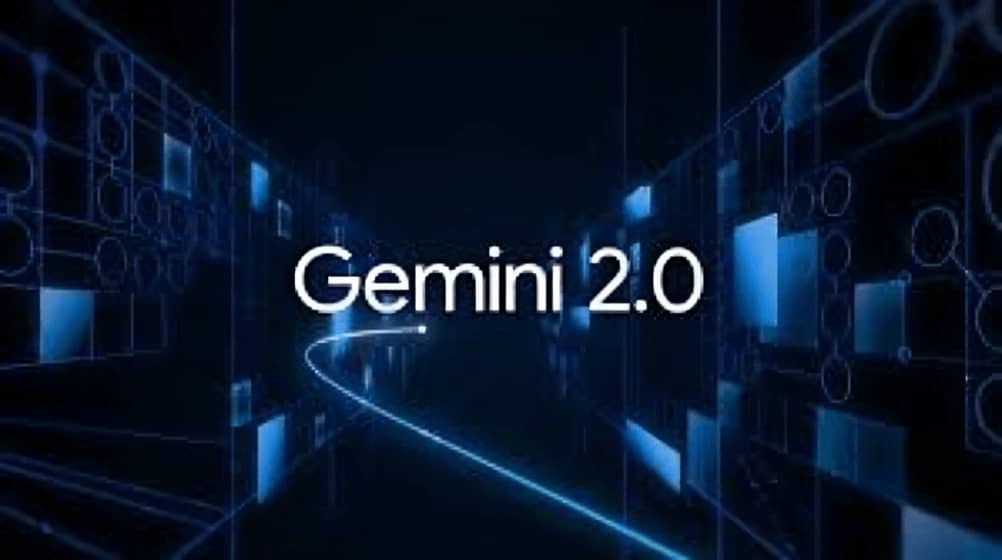Google’s much-anticipated Gemini update has officially placed artificial intelligence (AI) agents at the heart of its strategy, marking a significant shift in how the tech giant is integrating AI into its ecosystem. The Gemini update, which is part of Google’s broader vision to enhance its products and services, aims to make AI more accessible, powerful, and adaptable for users, businesses, and developers alike. By positioning AI agents at the core of this update, Google is taking a bold step toward shaping the future of AI-powered interactions across its platforms, from search and cloud services to mobile apps and beyond.
This shift signals a new era for Google’s AI offerings, transforming how users engage with technology on a daily basis. With the rise of generative AI and machine learning, AI agents are becoming indispensable tools for businesses and consumers. Google’s integration of these intelligent agents into the Gemini update has the potential to significantly alter the landscape of digital assistance, content creation, and problem-solving, taking AI from a useful tool to an integral part of how users interact with the internet.
The Role of AI Agents in Gemini
AI agents are software programs designed to understand user inputs, process data, and provide personalized, intelligent responses or actions based on that input. These agents can perform a range of tasks, from answering questions and managing schedules to providing detailed recommendations and generating content. Google’s Gemini update puts AI agents at the center of its ecosystem, integrating them into key services such as Google Search, Gmail, Google Assistant, and more.
One of the key features of this update is the use of AI agents to facilitate more natural and efficient user interactions. For example, instead of relying on traditional keyword-based search methods, AI agents can interpret user queries in a more conversational and context-aware manner, providing more relevant and precise answers. This shift could help solve the issue of ambiguous search queries or the need to sift through pages of irrelevant search results.
Furthermore, Google’s AI agents in the Gemini update are designed to work seamlessly across different devices and platforms, allowing users to access the same level of service whether they’re on their smartphones, laptops, or even smart home devices. This seamless cross-platform functionality creates a unified and frictionless user experience, where AI agents can assist with tasks ranging from scheduling appointments to managing personal information.
Enhancing Personalization and Efficiency
One of the standout aspects of Google’s Gemini update is its emphasis on personalization. AI agents in this update are designed to learn from users’ behaviors, preferences, and interactions to offer tailored experiences. By analyzing patterns in how users engage with Google services, AI agents can predict what information, services, or content will be most helpful at any given moment. This level of personalization enables a more efficient and intuitive user experience, where AI is not just reactive but anticipates needs before they arise.
For example, Google Assistant, which is already widely used for hands-free tasks, can become even smarter with the help of Gemini’s AI agents. These agents will analyze users’ routines and preferences, offering more contextually relevant suggestions. If a user consistently asks for traffic updates before leaving work, the AI agent may proactively notify them of potential delays or suggest alternate routes. Similarly, AI agents can provide more personalized content recommendations on YouTube, Google News, or other platforms, enhancing the overall user experience.
The Integration of Generative AI
Another groundbreaking feature of the Gemini update is the integration of generative AI, which allows users to generate original content based on specific inputs. This aspect of the update taps into the power of large language models and neural networks, enabling AI agents to create everything from articles and essays to music and visual content. Generative AI, when combined with the functionality of AI agents, opens up new possibilities for creators, businesses, and consumers alike.
For example, businesses can use Gemini’s AI agents to generate marketing materials, product descriptions, or even entire advertising campaigns with minimal input. Writers and content creators can leverage AI agents to draft initial ideas, help with research, or even fine-tune their work. In industries such as design, AI agents can assist in generating graphics, logos, and layouts, saving time and resources while improving overall creativity.
Generative AI also has the potential to change the way users interact with content. Instead of merely searching for pre-existing information, users can request AI agents to generate content specifically tailored to their needs. For example, if a user is looking to learn about a complex topic, such as quantum computing, they can ask an AI agent to generate a simplified explanation, step-by-step guide, or even a comparison of related concepts.
Security and Ethical Considerations
As AI becomes an increasingly integral part of Google’s ecosystem, concerns around privacy, security, and ethical implications continue to grow. The integration of AI agents within the Gemini update brings these concerns to the forefront, as users may feel uneasy about how their data is being used to personalize services or train AI models.
Google has addressed these concerns by incorporating robust security measures into its AI agents. Data privacy is prioritized, with users having control over what data is shared and how it is used. The company has also committed to transparency, ensuring that users are aware of how their data is being processed and for what purposes. Additionally, Google is taking steps to mitigate the risks associated with bias in AI models by implementing more diverse training data and refining its algorithms to ensure fairness and inclusivity.
Google has also acknowledged the importance of addressing ethical challenges in AI. With the growing influence of generative AI, there is a risk that AI-generated content could be misused or lead to misinformation. To combat this, Google is investing in developing AI models that are more reliable, accurate, and resistant to manipulation. The company is actively working on refining its AI agents’ ability to understand context, detect potential biases, and ensure that generated content aligns with ethical standards.
Implications for Developers and the Future of AI
The launch of the Gemini update also has significant implications for developers, as Google is providing more advanced tools and APIs to help integrate AI agents into their own applications and services. This makes it easier for third-party developers to harness the power of AI and leverage it in innovative ways. Whether for business solutions, productivity tools, or entertainment platforms, the Gemini update is expected to have a wide-reaching impact on the tech ecosystem.
For the future of AI, the Gemini update serves as a glimpse into where the technology is heading. With Google placing AI agents at the core of its offering, we can expect even more personalized, context-aware, and powerful AI-driven experiences in the coming years. As AI continues to evolve, it will become an even more integral part of how we interact with technology, making our digital lives more efficient, enjoyable, and interconnected.
Conclusion
Google’s Gemini update marks a pivotal moment in the evolution of AI, positioning AI agents as the cornerstone of its next phase of innovation. By integrating these intelligent agents into key products and services, Google is enhancing the user experience with greater personalization, efficiency, and convenience. The addition of generative AI adds even more power to these agents, allowing for content creation, problem-solving, and tailored suggestions on an unprecedented scale. As AI agents continue to become a central part of our digital lives, Google’s Gemini update showcases the exciting potential of AI in shaping the future of technology.





